Assessing the Impact of Covid-19 on Student Achievement
We held our third ‘members connect’ online conversation on 1st May and convened to discuss the impact of Covid-19 restrictions on the teaching, support and assessment for students on youth and community work programmes across the UK. Over 15 institutions were represented in the discussion and a full summary of key issues identified in the discussion that will be shared with PSRB’s across the 4 nations of the UK is included below:
1. The response to ‘no detriment’ on end of academic year activity
Colleagues have responded positively (and rapidly) to the changing demands of teaching, learning, support and assessment of students since ‘lockdown’ was implemented and University campus’ activity was suspended (see posts on previous Member Connect meetings). All institutions have responded to new QAA guidance on protecting students from being disadvantaged as requested in the NUS open letter that addresses the need for a ‘no detriment’ policy. Colleagues were responding to their institutional guidance on the implementation of policy and felt able to apply (and work within) the PSRB guidance provided by the NYA for England, CLD for Scotland and ETS Wales that has made exceptional allowances for students completing their qualifications in this academic year.
2. Ensuring we do not compound disadvantage
There was a general consensus that further attention needs to be given to the expectation that students progressing to the next level of study will be able to ‘catch-up’ on practice hours alongside academic and wider professional studies. This was of particular concern for students progressing to their final year of studies where the addition of ‘catch-up’ activities was described as ‘compounding the disadvantage’ created by Covid-19 restrictions. It was observed that not all students have the flexibility to accommodate additional work-experience or practice hours and this was particularly problematic for mature students, students with family/caring responsibilities and students who need to work to support their studies. It was noted that the prospect of extended placements was adding to anxiety for students as they plan for the next academic year. The group, therefore, requested PSRB bodies to revisit guidance for students progressing to their final year of studies as we are unclear how and when students can return to planned placement activities.
3. Identifying alternative measures for evidencing competence
There was a discussion about alternative measures for evidencing competence in the absence of, and to compensate for, loss of practice experience. There were suggestions for accommodating simulation activities (as common in other professions); peer-based exercises; and the use of more digital tools/engagement. While it was recognised that ‘exercises’ could not (and should not) replace real-world practical experience, there was consensus that a percentage of current practice-hours and competencies could be evidenced and/or compensated in this way. There was a suggestion a simple toolkit of exemplars could be created to support alternative measures for evidencing competency; and interpreted locally within programme parameters for achieving professional competency while Covid-19 restrictions continue. The group, therefore, requested PSRB bodies consider this approach in any revision to current guidance.
4. Equipping staff and students for digital youth work
There was recognition that digital engagement with students and digital youth work was both an opportunity and a challenge for staff and students. The pandemic has highlighted the importance of digital skills and digital youth work as a core component in youth and community work programmes. It was suggested that further online learning would be valuable in drawing together tools, learning new skills and engaging critically with forms of online youth and community work practice. This could be an area for collaborative activity in commencing a new academic year where institutions come together to explore the use of digital in teaching, learning and practice. The Association will explore this as part of its commitment to member’s CPD and in resourcing the planned ‘Teaching and Learning Seminar’ programme for 2020.
5. Listening to the student experience
It was recognised that the discussion regarding ‘no detriment’ had been initiated by students (through the NUS) and that it should be a priority for PSRB agencies across the four nations to engage youth and community work students in discussion about future guidance and the impact of Covid-19 on the student experience. While it was recognised that teaching staff at HE Institutions would convey the ‘student voice’, the exceptional circumstances related to Covid-19 would merit direct engagement through PSRB’s.
6. Priority(s) for resuming teaching and learning in September 2020
The final point raised at the meeting concerned the nature of resuming teaching and learning in the new academic year. At this stage it was acknowledged that Universities were anticipating a return to on campus teaching activity for the new academic year while planning, simultaneously, to deliver courses remotely if the Covid-19 pandemic persists and it is not safe to return to full campus activity. It was noted there had been some discussion about ‘priority’ subjects involving key workers e.g. Nursing , Teaching etc returning to campus teaching prior to lower impact subjects. There was a question raised about how PSRB’s could, collectively, request that youth and community courses are categorised as key worker/priority courses in addressing societies adjustment to post covid-19 realities. The Association, in partnership with PSRB’s, might wish to consider a joint statement and lobby on behalf of the youth and community work courses.
These outcomes will be shared with representatives of the PSRB agencies (NYA, CLD, ETS Wales and YCNI) that set conditions and provide guidance for institutions in the provision of professionally qualifying pathways in youth and community work for HE Institutions across the UK. It is anticipated these will inform updated guidance on responses to Covid-19 restrictions and its impact on the delivery of HE programmes.
See our events pages for future online dates and discussion themes.

